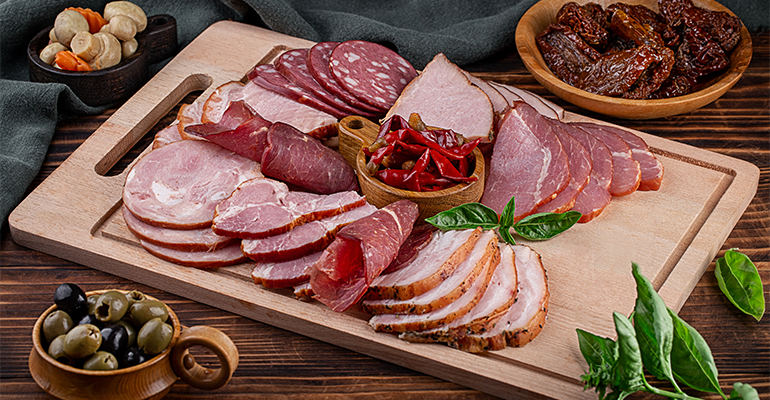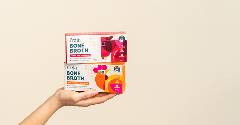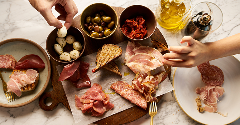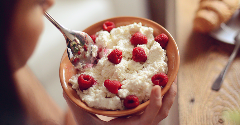News
Consumers join coalition in call for nitrites ban
26 Jun 2025European consumers overwhelmingly support a ban on nitrites, according to a coalition of world-leading scientists and politicians who warn that continued inaction is putting public health at risk.
Almost seven in 10 (69%) Europeans support a ban, according to polling for the Coalition Against Nitrites, including seven in 10 (69%) UK respondents and three-quarters (75%) of French consumers. In Germany, the figure is slightly lower, at three in five (59%).

The coalition, which includes scientists as well as representatives from seven political parties, launched a campaign in May to increase pressure on regulators to restrict the use of nitrites in processed meats.
“Removing nitrites from processed meats has the potential to have a significant positive impact on human health, given the extensive body of scientific evidence linking nitrite-cured meats to colorectal cancer,” said coalition member Dariush Mozaffarian, Jean Mayer Professor at the Friedman School of Nutrition Science and Policy at Tufts University, in the US.
Nitrites: Warning over link to cancer
Nitrites are often used as preservatives in processed meats like bacon, ham, and hot dogs because they contribute to the characteristic colour and flavour of the meat.
However, they can react with secondary amines in the meat, especially during cooking at high temperatures, to form nitrosamines – which are known carcinogens.
Regulators in some countries point to their ability to hinder the development of harmful bacteria. However, in 2019, a study conducted by the scientific consultancy Campden BRI for the British Meat Processors Association found that nitrites do not prevent the growth of Clostridium botulinum, the bacteria that causes botulism.
“The study showed no significant difference between nitrite-cured and nitrite-free samples,” members of the coalition wrote on social media in May this year. “So if nitrites aren’t protecting us, and are linked to cancer, why are they still being added to our food?”
A 2015 report by The International Agency for Research on Cancer found that consuming processed meat is “carcinogenic to humans” and that the consumption of red meat is “probably carcinogenic to humans”. Examples of these processes include salting, curing, fermentation, and smoking.
Meanwhile, a 2022 study by the French Agency for Food, Environmental and Occupational Health & Safety provided further evidence of the link between the risk of cancer and nitrites in processed meats.
Nitrite-free products: The right way to go?
Some companies have already moved to nitrite-free products.
Finnebrogue, a food producer based in Northern Ireland, first introduced nitrite-free bacon under the Naked brand in 2017. The pork products are made without sodium nitrite or nitrites from traditional sources or vegetable extracts like celery juice.
Research indicates that nitrite-free cured meats available on the Irish market “have similar sensory profiles to their traditionally cured counterparts”, according to research published in the journal Current Opinion in Food Science in 2024.
“The significant contribution of nitrates/nitrites on all sensory attributes of cured meats underscores their importance and emphasises the challenges associated with their substitution,” the researchers, from Teagasc Food Research Centre and University College Dublin, wrote.
They concluded that levels could be reduced to “as low as 50 to 75 ppm [parts per million] (depending on the specific product and the alternative nitrates/nitrites used)”, by using “small quantities of natural colourants and other natural ingredients to enhance antioxidant and antimicrobial properties maintain the sensory quality”.
Regulation in Europe around the corner
The EU is soon to implement significant changes to the use of nitrites and nitrates in food products, particularly in processed meats.
Effective from 9 October, the maximum permissible levels of nitrites (E 249-250) added during the manufacturing of meat products will be lowered: from 150 mg/kg to 80 mg/kg in general meat products and 100 mg/kg to 55 mg/kg in sterilised meat products.
Specific limits for traditionally cured meats will also be set between 100 and 105 mg/kg, depending on the product. Maximum residual levels – the amount of nitrites remaining in the final product – will be introduced, ranging from 25 to 50 mg/kg for various categories.
Food businesses will need to reformulate their products and monitor nitrite levels throughout their shelf life, explained Lallemand Bio-Ingredients in a blog on the laws. Lallemand has been developing alternatives for nitrites using yeast extracts.
Related news

Bone broth: From old-fashioned to en vogue
24 Nov 2025
OXO’s entry into bone broth has turned the spotlight on this small but high-performance category – and there is still scope for growth, especially in the area of GLP-1 support.
Read more
UK Government overhauls childhood obesity strategy
21 Nov 2025
The UK Government has announced a new package of measures designed to reverse the nation’s childhood obesity epidemic following the release of statistics revealing the scale of the crisis.
Read more
Nitrites: Pressure grows on UK to follow EU’s lead
20 Nov 2025
Pressure is growing on the UK to follow the EU’s lead after the bloc revised its regulations on the permitted levels of nitrites and nitrates in cured meats.
Read more
Matcha madness: Why green is this year’s hottest colour
19 Nov 2025
Five years ago, it was a struggle to find matcha outside of Japan. Now it seems to be popping up everywhere, from coffee shops to supermarket shelves.
Read more
How younger consumers are redefining ingredient choices and rejecting brand loyalty
18 Nov 2025
Gen Z and millennial consumers’ preferences for transparency, functionality, and purpose are “redefining the very nature of consumption itself”, says SPINS.
Read more
Hybrid formats and flexible positioning to disrupt category norms in 2026
17 Nov 2025
Trend forecasters expect food and drink to move more fluidly across occasions, functions, and formats as consumers seek versatility, novelty, and convenience.
Read more
Danone highlights digestive health as potential ‘tipping point’ for food industry
13 Nov 2025
Danone is betting on a food industry “tipping point” that will bloat the market for healthy products, particularly those related to gut health.
Read more
Soy story: WWF scores UK supermarkets on sustainability efforts
12 Nov 2025
WWF has published its latest “Soy Scorecard”, ranking UK supermarkets’ efforts to combat deforestation and land conversion in their soy supply chains.
Read more
New UPF standard hoped to offer consumers ‘coherence and clarity’
10 Nov 2025
Ingredients companies are being urged to enter “a new era of partnership and innovation” following the launch of the industry’s first non-UPF verification scheme.
Read more
Cottage cheese makes a comeback as consumers call for cleaner labels
6 Nov 2025
From ice cream to dips and ready meals, cottage cheese is experiencing a renaissance as a high-protein, clean ingredient for health-conscious consumers.
Read more